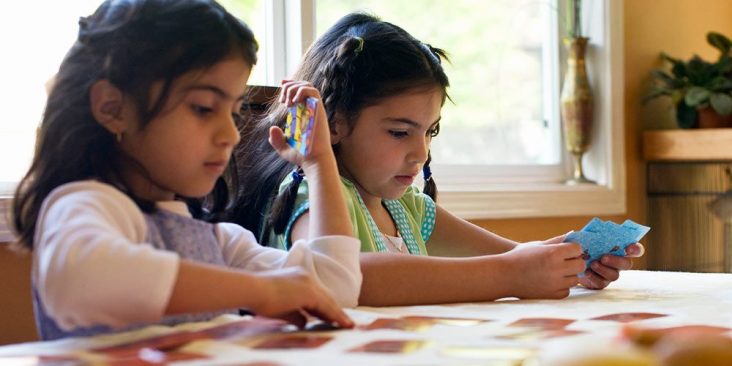Dr. Kathy Hirsh-Pasek argues in her book Einstein Never Used Flash Cards that your younger children need time to just be kids, and that too many parents try to convert their children into academic geniuses at an early age. “We know a huge amount about how early children learn, based on 30 years of wonderful study,” Hirsh-Pasek writes in U.S. News & World Report. According to the findings, true learning must take place in context, and play is the best teacher.
Playing with other kids, making up stories with them, seeing patterns in leaves, and figuring out that if there are four people coming for dinner, you need four plates, four forks, and four napkins are all things that youngsters learn via ordinary life. With blocks, young toddlers can learn about physics. It’s not necessary for them to go around memorizing E=MC squared.” Allow your children to be children. Here are ten techniques to assist your children in becoming more intelligent.
1. Snooze time
It is critical that children have adequate sleep. Follow your pediatrician’s advice and get at least eight hours of sleep each night. Your children will not only be more alert and ready to study, but they will also have a far better attitude. Set and stick to a bedtime for your child.
2. Exercise that brain
Your child’s brain works like a sponge, soaking in everything it encounters. Age-appropriate games help him build skills and excite his mind. Games that develop intelligence include board games, building blocks, puzzles, checkers, and chess. Encourage them to be curious.
3. Physical activity
Children require physical activity to engage their senses, whether it is structured sports or simply playing in the yard. Fit youngsters do better academically, according to a University of Illinois study. They also have a better sense of self-worth and self-assurance. Get out there and have some fun with your children.
4. Music
According to research from the University of Toronto, children who learned music as a youngster grew up to have higher IQs. Music nourishes the soul and enlivens the imagination. Music has the power to expose your child’s mind to a world of new possibilities.
5. Video games
Many games are now available on the market that are designed to help your youngster improve his or her learning skills. They encourage strategic thinking, innovation, and collaboration. Many video games have drawbacks, but some might be excellent for improving motor skills and memory.
6. Nutrition
Your youngster must be fed on a regular basis and with nutritional foods. Children who are constantly exposed to junk food are more prone to disease. They will also be deficient in nutrients such as iron, which are necessary for the formation of healthy brain cells.
7. Read
Encourage your child to read because it is the most cost-effective and fail-safe strategy to improve her learning ability. As early and as often as possible, read to your youngster. Keep a large number of books in your home. Make sure you get one for yourself. Those tiny eyes are always watching you to see what you’re up to.
8. Stable environment
Children require a sense of security in order to perform at their best. [Follow this link on Twitter] Provide children with a stable and dependable home. Before you act, keep your child in mind. She’s delicate, and she should be treated accordingly.
9. Real-life experience
Make sure your kids get out and explore their surroundings. Taking them to the park is a good idea. Visit the mountains, the zoo, museums, or the beach with them. Take them for a stroll. Every trip your child takes is an opportunity for him or her to learn something new.
10. Old-fashioned work ethic
In every element of life, your child will not be the best, brightest, or fastest. Each of us has strengths and limitations. Encourage your child to do his best and work as hard as he can at all times.



